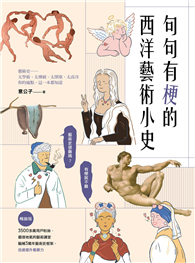A volume in Advances in Cultural Psychology Series Editor: Jaan Valsiner, Clark University This book is a result of a major research project in Switzerland that brings together the fields of Education and Socio-Cultural Psychology. It is focused on how culture is involved in very concrete educational practices. The reader is invited to follow the research group in a Swiss technical college that trains young people in precision mechanics during a period of major technological change: the arrival of automated manufacturing systems. This transition in the trade is an opportunity to explore the educational and psychological challenges of vocational training from a perspective inspired by activity theory and the consideration of social interactions and semiotic or other technical mediations as crucial to the formation of professional identities and competencies. What are the most appropriate settings for learning? There is no simple answer to this question. What can lead a pupil to become engaged, even if this is within a school, with all the seriousness of a future professional? Under which conditions is an internship in a company genuinely formative? Is it necessary to possess the most recent technologies in order to offer high quality training? What do we know about the relation between doing and knowing in the construction of new competences? How can it be planned and informed to become an object of reflection and make sense in the eyes of the learner? Dealing with such questions, this study explores new working hypotheses on the manner in which the young experience their training and on the significant role for them of professional specialization.
| FindBook |
有 1 項符合
Apprentice in a Changing Trade的圖書 |
 |
Apprentice in a Changing Trade 作者:Perret 出版社:Information Age Publishing 出版日期:2011-03-16 語言:英文 規格:精裝 / 228頁 / 23.4 x 15.5 x 1.5 cm / 普通級/ 譯本 |
| 圖書館借閱 |
| 國家圖書館 | 全國圖書書目資訊網 | 國立公共資訊圖書館 | 電子書服務平台 | MetaCat 跨館整合查詢 |
| 臺北市立圖書館 | 新北市立圖書館 | 基隆市公共圖書館 | 桃園市立圖書館 | 新竹縣公共圖書館 |
| 苗栗縣立圖書館 | 臺中市立圖書館 | 彰化縣公共圖書館 | 南投縣文化局 | 雲林縣公共圖書館 |
| 嘉義縣圖書館 | 臺南市立圖書館 | 高雄市立圖書館 | 屏東縣公共圖書館 | 宜蘭縣公共圖書館 |
| 花蓮縣文化局 | 臺東縣文化處 |
|
|
圖書介紹 - 資料來源:博客來 評分:
圖書名稱:Apprentice in a Changing Trade
|










